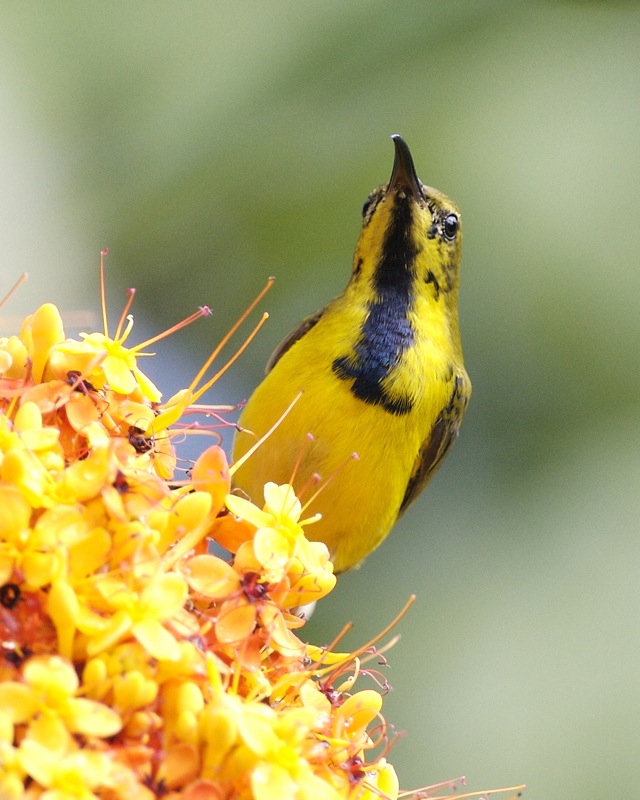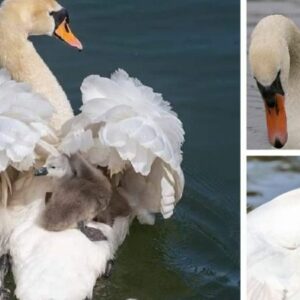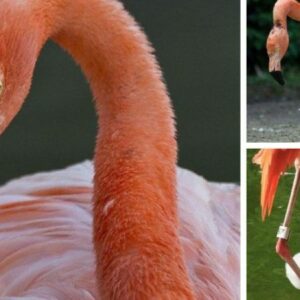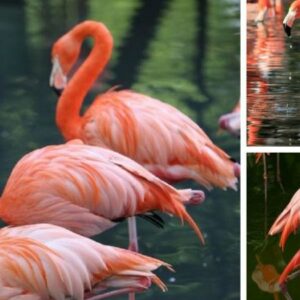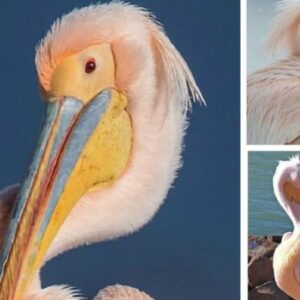A highly attractive little bird who unleashes his secret weapon of apricot-colored feathers (usually concealed beneath the wings) and an iridescent blue throat right when he needs it most, the Olive-backed Sunbird!
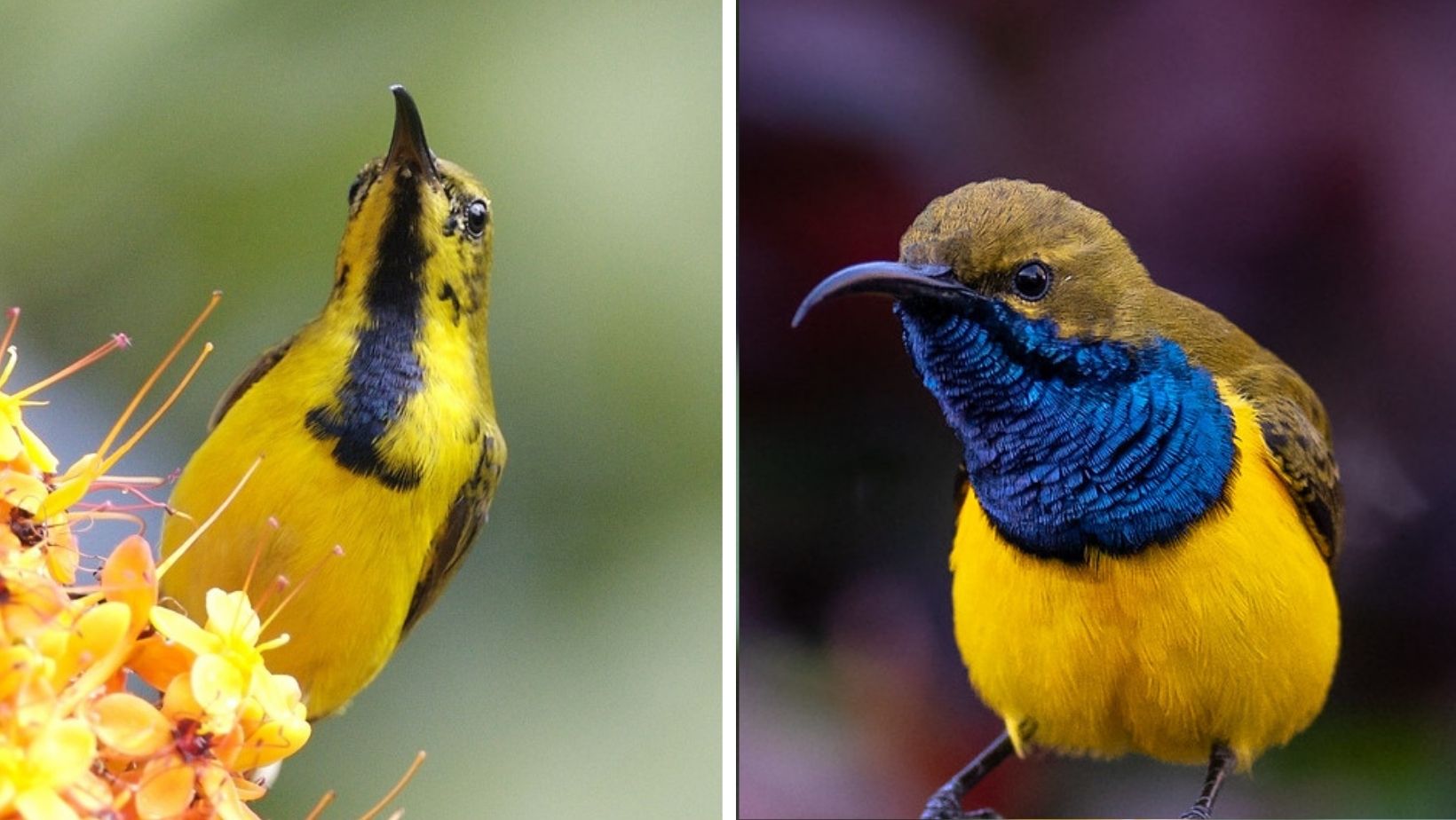
Meet the Olive-backed Sunbird
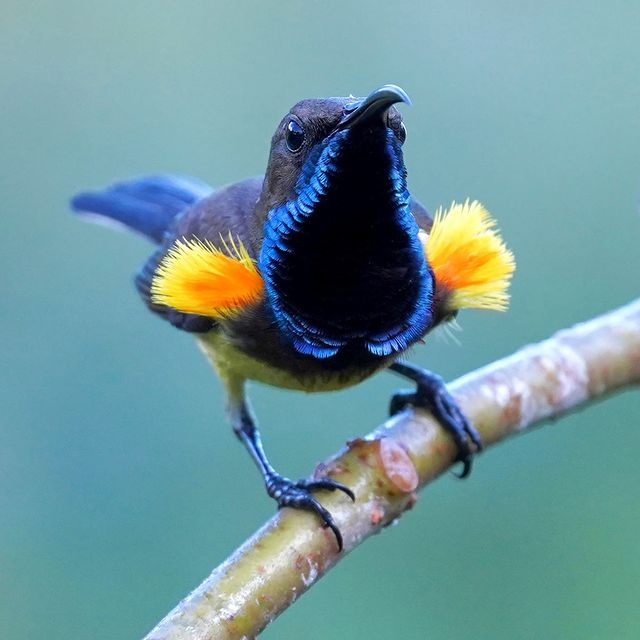
The olive-backed sunbird (Cinnyris jugularis), also known as the yellow-bellied sunbird is small in size, only around 12 cm long. The male of the species has a bright yellow belly and a back that is dark brown in color. His forehead, throat, and upper breast are dark, metallic blue. He also has apricot-colored feathers, which are usually not visible, except when using them for display as a secret weapon to attract females. Otherwise, they remain concealed beneath his wings.
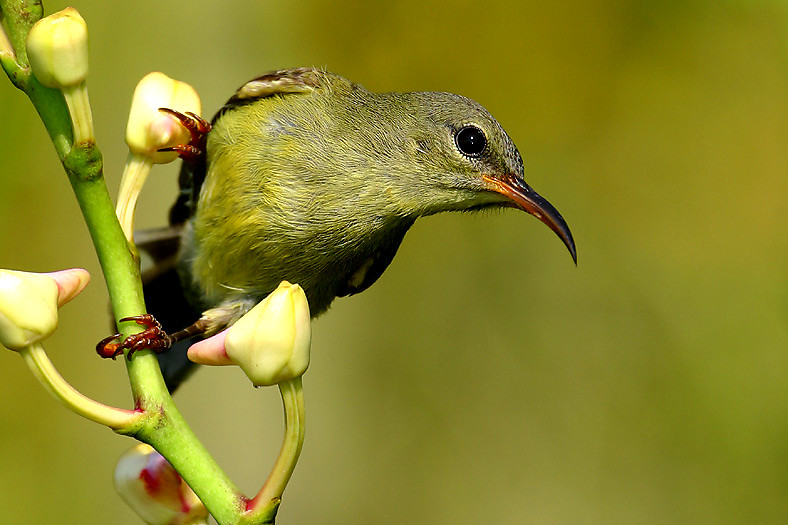
This female, like the male, has the same bright yellow belly, and brown back.
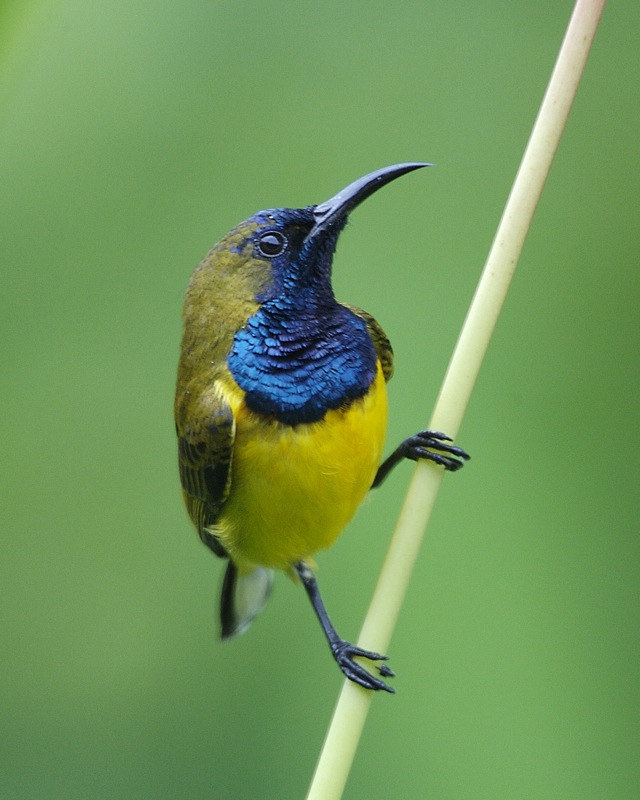
Though she lacks the more colorful plumage he has.
%0AThese birds are mainly found in south-east Asia and Australia, from southern China, through the Philippines and Myanmar, Laos, Thailand and Malaysia, and into Indonesia and north-east Australia.
%0A
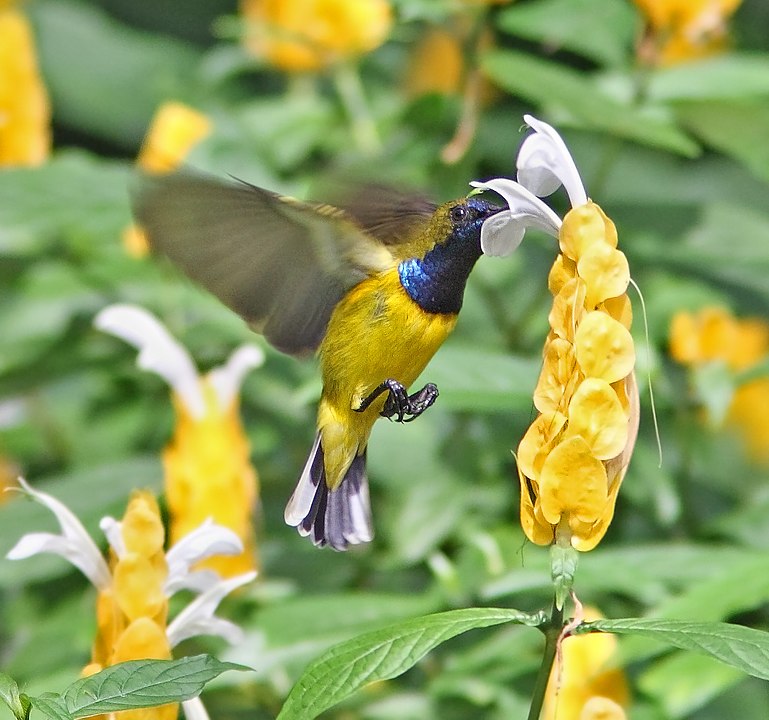
Olive-backed sunbirds were originally found in mangroves swamps, however, they seem to have adjusted to human-inhabited areas. Now being found in woodlands, orchards, coconut plantations, and even towns and villages.
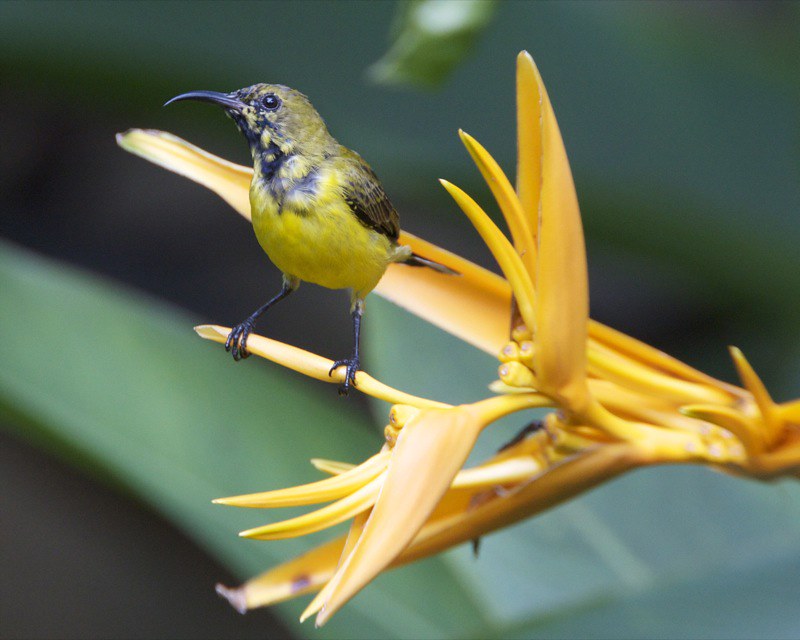
An omnivorous bird, their diet consists of both nectar and invertebrates. Nectar is obtained from flowering plants like Coconut and Papaya. They like to hunt spiders, ants, and caterpillars.
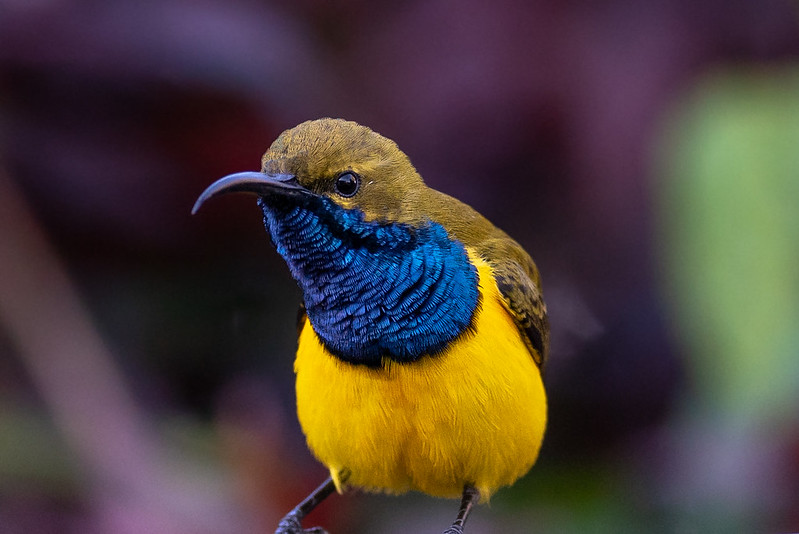
Olive-backed sunbirds breed from December through to July. During this time the females build a pear-shaped nest with a small side entrance, on their own. This nest is constructed from grᴀss stems and other fibrous material. She lays 1-3 pale green eggs with brown blotches. She incubates them for 11 days until they hatch whereupon the chicks are fed by both parents until they are fledged after 15-16 days.
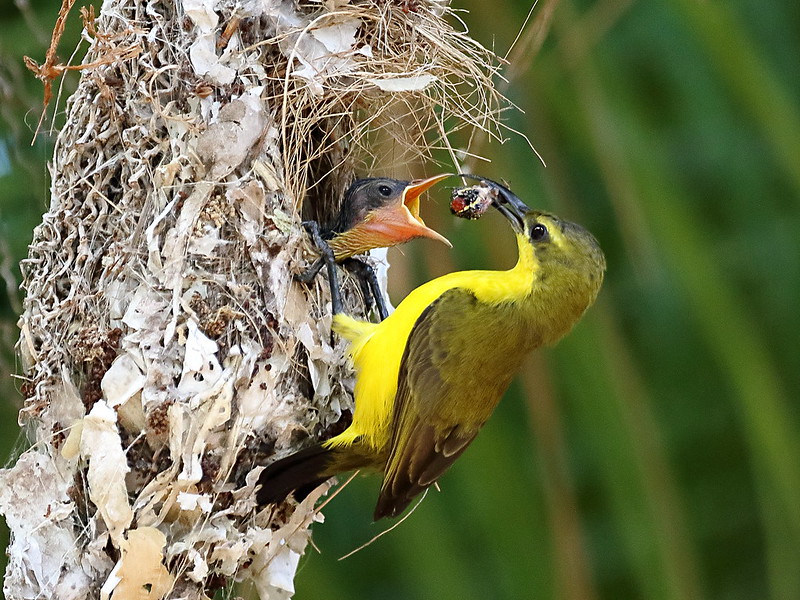
The population of Olive-backed sunbirds is suspected to be stable in the absence of evidence of any declines or substantial threats.
